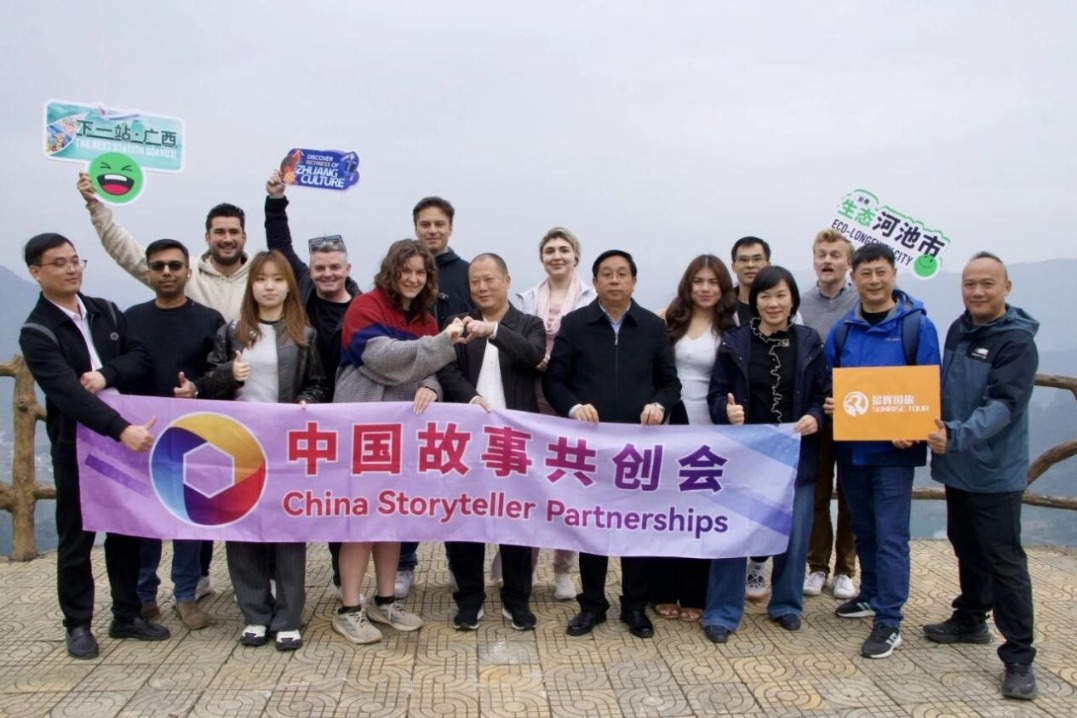Taking effect
China is advancing a development governance paradigm that diverges from traditional Western approaches


After the Fourth High Level Forum on Aid Effectiveness in Busan in 2011 adopted the Global Partnership for Effective Development Cooperation (GPEDC), "development effectiveness" was championed as a new development paradigm, promoted by traditional donors, emerging donors, recipient nations and non-state actors. Yet, as the commitments from the OECD donors failed to materialize and problems with the international development governance mechanisms emerged, this model for development lost its luster. This waning of the "development effective "agenda reflects deeper predicaments with the power structures, standard design and institutional inclusiveness of the global development governance system.
The GPEDC failed to reflect the principle of differentiated responsibilities in its institutional design, while its accountability mechanism embodies an asymmetric "centralized power-accountability sharing" paradigm. Traditional donors monopolize the setting of agenda and rules, yet exhibit chronic deficiencies in commitment delivery and self-regulation. Emerging donors, conversely, confront systemic exclusion from substantive decision-making while bearing disproportionate compliance burdens under GPEDC monitoring regimes. This leads to the dilemma of imbalance between power and responsibility.
The United States was once a key advocate of the GPEDC. The Barack Obama government actively engaged in the Busan Forum, further solidifying the country's commitment to the GPEDC and supporting the inclusion of the US Agency for International Development (USAID) in its core mechanism. However, the US gradually withdrew from the global development governance mechanism during the first Donald Trump administration, stressing a geostrategic orientation of "America First".Later, although the Joe Biden administration paid lip service to the importance of multilateralism, its actual aid disbursements were increasingly realigned to serve the US' strategic competition goals. This shift was exemplified through initiatives such as the US International Development Finance Corporation and the "Indo-Pacific "strategy, both of which prioritize support for specific countries in line with the US' geopolitical objectives.
Upon Trump's return to office in January, he promptly froze most foreign aid and announced the creation of the Department of Government Efficiency under Elon Musk's leadership. Using "efficiency and transparency "as a pretext, USAID was disbanded. Its structure was merged into the US State Department, all development project contracts were halted, the official website was taken down, and numerous archives were destroyed. This signaled the end of one of the world's most influential development institutions since the Cold War and marked a complete abandonment of the US commitment to the GPEDC. Such a strategic withdrawal has undermined the GPEDC's legitimacy and representation, created a governance vacuum in the global aid system, and weakened the accountability mechanism of the multilateral platform for traditional donor countries.
In contrast with traditional donor countries, emerging donors broadly endorse the principles of development effectiveness while explicitly opposing GPEDC-imposed uniform monitoring standards for all aid providers. As a leading emerging donor, China leverages its distinct differentiated institutional engagement and South-South cooperation experience to advance a development governance paradigm diverging from traditional Western approaches. It contends that South-South cooperation should not be incorporated into the Development Assistance Committee-led GPEDC accountability framework. Instead, it advocates establishing differentiated responsibility frameworks — guided by the "common but differentiated responsibilities" principle — that align with individual nations' developmental stages and capacities. This stance reconciles recognition of South-South cooperation's distinctive character with constructive engagement in global rule-making.
Furthermore, China has demonstrated its increasing commitment to institutional transparency through the publication of its Foreign Aid White Paper, disclosure of assistance information, and establishment of cooperative mechanisms. Concurrently within the South-South cooperation framework, China actively advances innovation in multilateral governance. As of June 2023, it had concluded over 200 Belt and Road cooperation agreements with more than 150 countries across five continents and over 30 international organizations. By strategically leveraging this platform, China advances regional data sharing, capacity building and shared responsibility mechanisms — systematically addressing structural constraints in global development governance under the GPEDC framework.
First and foremost, priority must be given to synergistic linkages across multilateral mechanisms, addressing the counterproductive fragmentation of different development governance platforms. The UN Development Cooperation Forum and the GPEDC — as dual anchors for global development cooperation — require a permanent coordination mechanism for the implementation and accountability for the global sustainable development goals. Moreover, the two platforms should jointly develop a Global Dashboard on Effective Development Cooperation. By consolidating their respective evaluation data and experiential reports, the dashboard would enhance the integration, complementarity and synergy between policies and practices.
Second, a differentiated responsibility mechanism should be set up. It should respect varying development stages and encourage emerging donors to participate in the development effectiveness system. The GPEDC's monitoring system must transition from its current rigid, uniform standards to a capability-based tiered structure. This involves setting differential participation and indicator priorities based on a country's development phase. For example, China could initially participate in the monitoring indicators related to "transparency improvement" while maintaining flexibility in fiscal predictability. Meanwhile, emerging donor countries should be encouraged to create their own evaluation standards, and participate in global development cooperation through a "voluntary reporting+international comparison "approach. To ensure fairness and inclusiveness, they are also encouraged to build their local monitoring capabilities by providing assessment templates and technical assistance.
Third, revitalizing trust mechanisms in North-South development cooperation is critical to restore its geopolitical foundation. Traditional OECD donors must substantively recommit to development effectiveness and provide financial and political support under the GPEDC framework. Concurrently, strategic pilot initiatives for functional cooperation between the traditional and emerging donor countries should be launched to create joint funding facilities for humanitarian aid, climate adaptation and global health to cultivate trust via outcome-focused collaboration. Complementing these efforts, the United Nations should lead the efforts to institutionalize tripartite dialogue platforms that synchronize development agendas, thereby enhancing systemic resilience in multilateral cooperation.
Fourth, the GPEDC must undertake institutional reforms to accommodate Global South countries in global development governance for joint contributions and shared benefits. Concrete steps should include: overhauling the GPEDC's governance structure by forming a global development cooperation executive committee in which Global South countries hold the majority and can steer agenda-setting and evaluation. In addition, cultural adaptability indicators should be incorporated into the monitoring mechanism to acknowledge the diverse approaches of South-South cooperation and reflect a more equitable and pluralistic assessment criteria.
Future global development governance should not be subject to Western powers, and should instead promote establishing more equitable, diverse and adaptive international mechanisms. Only by dismantling structural constraints and building a consultative and inclusive governance system can we realize the global partnership for development pledged in the UN 2030 Agenda and achieve its sustainable development goals.


Huang Meibo is director and professor at the International Development Cooperation Academy at Shanghai University of International Business and Economics. Ying Lingrong is a PhD student at the International Business School at the SUIBE. The authors contributed this article to China Watch, a think tank powered by China Daily. The views do not necessarily reflect those of China Daily.
Contact the editor at editor@chinawatch.cn.


































